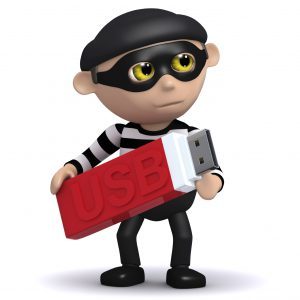Be proactive at protecting your personal information
April 25, 2013

There has been a serious breach of the privacy of 52,000 Canadians who have investment accounts with 32 investment dealers by the organization responsible for ensuring dealers safeguard your privacy.
In mid-April the Investment Industry Regulatory Organization of Canada (IIROC) announced that a portable device containing personal information about 52,000 Canadians was lost in late February.
The first question is who is IIROC and what do they do?
IIROC is a national self-regulatory organization which oversees the activities of all investment dealers in Canada. IIROC is required to conduct compliance reviews of investment dealers’ client accounts. Investment dealers are required to provide IIROC access to personal information on all investors. The IIROC website describes its role as “Protecting Investors and Fostering Fair and Efficient Capital Markets across Canada.”
Last week IIROC mailed notification letters to all investors affected by this security breach. In most cases the information lost included some or all of the following: your name, address, date of birth, the name of your investment dealer and account numbers. Some investors were affected by the loss of more sensitive information. They too have been advised.
Unfortunately this will have affected many readers of this column. We can use this event as a learning experience and be better prepared by being proactive at protecting our personal information. That includes protecting ourselves from identity theft.
Identity theft occurs when someone steals your personal identity and then uses that information to steal your assets. An example is someone pretending to be you, arranging a mortgage on your house and taking the mortgage funds while leaving you with the mortgage debt.
To put this in the appropriate perspective, technology allows for the free flow and exchange of information between various users wanting access to your data. You must safeguard yourself against the loss and misuse of this sensitive and private information.
Simple actions will make identity theft difficult. We suggest you do not carry your birth certificate or your social insurance number in your wallet. Losing your wallet containing these two important documents is a real prize for a thief.
Monitor your financial information. Shred documents before discarding. Check transactions on debit and credit card statements to ensure only those purchases you authorized are listed. Do not release private information to anyone who has contacted you unless you are absolutely sure who that person is and that you trust them.
If need be, you can get the telephone number of the person calling and call them back. If you are satisfied they are who they say they are; then you may decide to release personal information.
Personal information can also be lost by someone just observing your lifestyle or knowing what your occupation is. For many, their financial assets are no secret.
People can get your address and phone number through many different on-line directory services. Social media is also a way of disclosing who you are to the world. Real privacy has become a thing of the past.
Conducting a credit check on yourself is one of the best actions you can take to determine if your privacy has been compromised. Does all of the information from your credit check fairly reflect you? Are there any aspects that you do not recognize such as having credit activity with institutions you do not use?
The two options you have for obtaining credit checks are Equifax Canada and TransUnion Canada. Both firms have websites.
IIROC has said there is no evidence that the information lost has been accessed or used by a third party. That is good news.
What will be even better news is if this very public and embarrassing mistake by a powerful regulatory organization existing to protect Canadians motivates us all to be more proactive at protecting our own privacy.
RELATED ARTICLES
